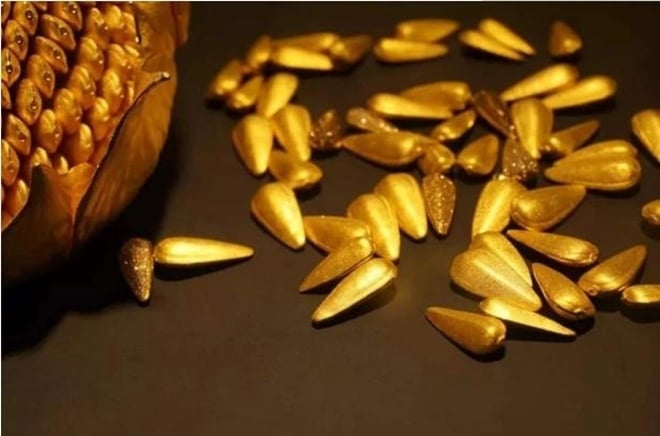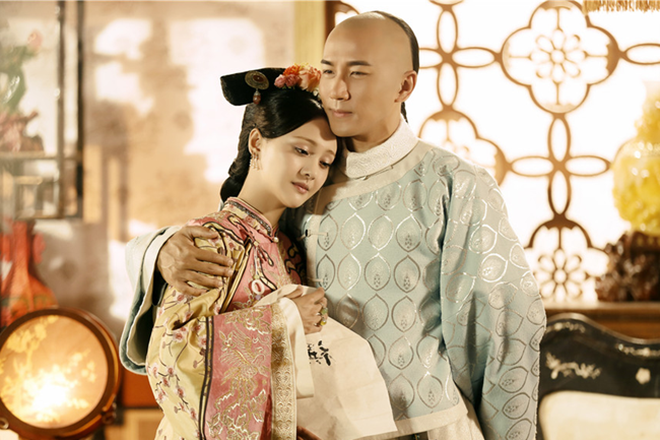In feudal China, the emperor was the head and had everything under his control. The women in the harem all hoped to receive the emperor's favor to move up the social ladder.
However, few people know that the reward that every concubine wishes to receive is not a nightly bedchamber but this item. What is it?

Kim qua tu is something that every concubine wishes to receive from the emperor. (Photo: Sohu)
What we are talking about is “golden gourd” or also known as golden melon seeds. According to Ming Dynasty history books, “golden gourd” was something that ancient Chinese emperors used to reward their concubines or servants. In fact, gold gourd is a piece of gold that looks like melon seeds. Gold gourd is not just gold, but it has more meaning to the concubines.
Firstly , the gold nuggets are of considerable value. Gold nuggets are pieces of gold weighing between 20 and 30 grams. At the current exchange rate, a piece of gold nuggets is worth more than 6,000 yuan (nearly 20 million dong).
In feudal times, only nobles could own gold and silver, it was very difficult for common people to own it. Furthermore, during the Ming Dynasty, the emperor banned the circulation of gold and silver among the people, so gold and silver were used as royal rewards by the king. Therefore, the value of gold and silver at that time was very high.

Being awarded golden pomelos by the emperor also meant that the concubines received much favor. (Photo: Sohu)
Second , the golden thread also shows the emperor's favor to someone. For concubines, the emperor's favor and rewards are also a way for them to show their status in the harem.
The emperor's reward of golden gourd seeds was also proof that the concubine received much affection from the emperor. The more golden gourd seeds one had, the more favored one was. Therefore, this was also one of the reasons why concubines always wanted to have this thing.
Quoc Thai (Source: Sohu)
Source


![[Photo] Prime Minister Pham Minh Chinh chairs the Government's online conference with localities](https://vphoto.vietnam.vn/thumb/1200x675/vietnam/resource/IMAGE/2025/10/5/264793cfb4404c63a701d235ff43e1bd)



![[Photo] Prime Minister Pham Minh Chinh launched a peak emulation campaign to achieve achievements in celebration of the 14th National Party Congress](https://vphoto.vietnam.vn/thumb/1200x675/vietnam/resource/IMAGE/2025/10/5/8869ec5cdbc740f58fbf2ae73f065076)





















































![[VIDEO] Summary of Petrovietnam's 50th Anniversary Ceremony](https://vphoto.vietnam.vn/thumb/402x226/vietnam/resource/IMAGE/2025/10/4/abe133bdb8114793a16d4fe3e5bd0f12)

![[VIDEO] GENERAL SECRETARY TO LAM AWARDS PETROVIETNAM 8 GOLDEN WORDS: "PIONEER - EXCELLENT - SUSTAINABLE - GLOBAL"](https://vphoto.vietnam.vn/thumb/402x226/vietnam/resource/IMAGE/2025/7/23/c2fdb48863e846cfa9fb8e6ea9cf44e7)





































Comment (0)